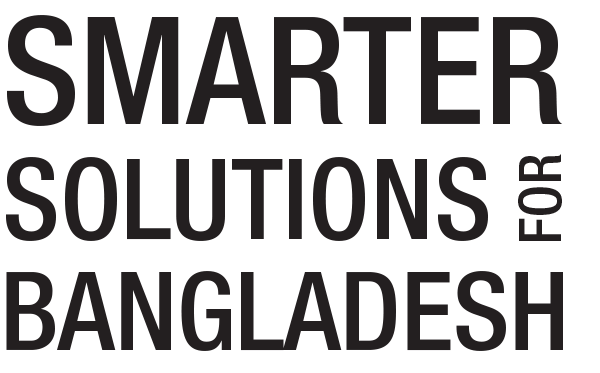How e-GP save taxpayers tens of billions each year
by Bjorn Lomborg
Each year, Bangladesh spends more than Tk 720 billion (Tk 72,000 crore) on government procurement. That includes paying for anything from Padma Bridge to pencils for government offices and everything in-between. Imagine if this process could be done just 1 percent more efficiently—that would save Tk 7 billion (Tk 720 crore). As it turns out, it can likely be improved by closer to 10 percent, saving billions of takas that could pay for other projects or services.
Government procurement is fraught with inefficiency. Companies and contractors that want to provide goods and services to the government must currently apply for a tender in-person, showing up at a government office to physically file forms. Sometimes, contractors who have political connections are best placed to win bids, or even to block other contractors who might be able to offer better prices. On other occasions, winning bidders subcontract the work out to other firms, taking their own cut along the way and pushing costs higher and higher.
These practices in public procurement can lead to delays, cost overruns, and subpar output, which all add up to higher costs for the government—which ultimately means higher cost to taxpayers and donors.
How can the national government improve its procurement and ensure that taxpayer funds are spent as wisely as possible? Bangladesh Priorities aims to discover the best answers to this and many other challenges that relate to national development efforts. The partnership between the Copenhagen Consensus Center and BRAC has commissioned teams of expert economists from the country and around the world to examine the most cost-effective ways for Bangladesh to achieve her development aims.
New research by Wahid Abdallah, a research fellow at the BRAC Institute of Governance and Development, examines the effects of transforming the current procurement system into one that uses online systems. Abdallah’s study shows that electronic government procurement (e-GP) holds enormous potential benefits for the country—each taka spent on such efforts will do a phenomenal 663 takas of good.
| Strategy | Takas of benefits per taka spent |
|---|---|
| Implement e-GP across government | 663 |
An ongoing project started in 2008 by the national government in conjunction with the World Bank aims to reform public procurement. By 2011, four Bangladeshi agencies had implemented electronic procurement, representing about 10 percent of all public procurement. The hope was that having contractors bid through online submissions, rather than physically lodging forms in-person, would cause the number of bids to increase significantly. All bidders could also check to see who ultimately won a bid online, increasing transparency of the process.
If anyone can easily bid on a government contract from their office or even own home, and if everyone feels that the process will be fair, more companies are likely to bid. And more bids for a given project means more competition, which should also lead to lower prices tendered to the government.
The research analyzes data from the Local Government Engineering Department (LGED), one of the four agencies that implemented e-GP in 2011. Government procurement items fall into one of three categories: goods, services, or so-called “works,” which lies somewhere in between and often applies to infrastructure projects. Most of LGED procurement is for works, which also represent 73 percent of all government procurement.
LGED first introduced e-GP as a very small pilot in 2012, when less than 1 percent of all the department’s items were procured electronically. In 2013, however, this share jumped to 61 percent as more LGED staff were trained and more bidders registered for the online process. Today, about 95 percent of LGED procurement uses e-GP, which is about as high a rate as can be expected for any agency, given donor stipulations that require using traditional procurement for certain projects.
Before any project, LGED engineers make their own cost estimate for every item that will be procured. This provided a clear measure to track the effects of e-GP. Unsurprisingly, as more and more users adopted e-GP, prices went down—the new price was typically 11.9 percent lower.
The effects of expanding e-GP across most of the other 90 percent of government procurement would be humongous. The costs are straightforward. The majority goes toward purchasing computers and software, costing Tk 985.8 million (Tk 98.58 crore). It will also require training staff to handle e-GP nationwide, as well as paying for operations and maintenance. The total value of these costs spread across the indefinite future equals Tk 1.44 billion (Tk 144 crore).
The benefits would dwarf these costs. Expanding e-GP would bring savings of an estimated Tk 52.7 billion (Tk 5,274 crore) per year. Across the entire future, e-GP would give total benefits of Tk 956.8 billion (Tk 95,677 crore). And this is a cautious estimate, because it includes savings on works procurement only, given that the LGED analysis covered works only. So in all, each taka spent to expand e-GP would yield at least 663 takas in benefits.
To give a sense of proportion, total expenditures by the Road Transport and Highways Division were Tk 55.6 billion (Tk 5,560 crore) for the most recent year data are available. So the benefits from e-GP could pay for nearly all government spending on road systems.
Electronic procurement promises massive benefits to the national government and savings for taxpayers. Would this be one of your top priorities for Bangladesh? Let us hear from you at https://copenhagen.fbapp.io/e-procurementpriorities. We want to continue the conversation about how to do the most good for every taka spent.
Dr. Bjorn Lomborg is president of the Copenhagen Consensus Center, ranking the smartest solutions to the world’s biggest problems by cost-benefit. He was ranked one of the world’s 100 most influential people by Time Magazine.
This article was originally posted in The Daily Star.


